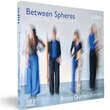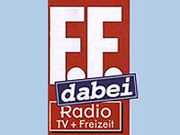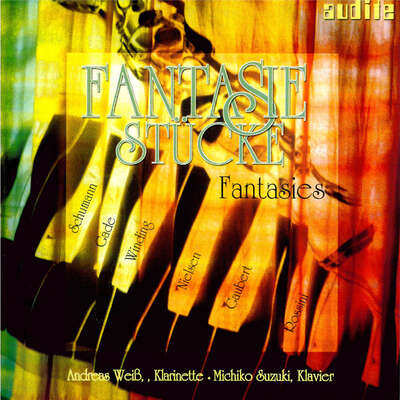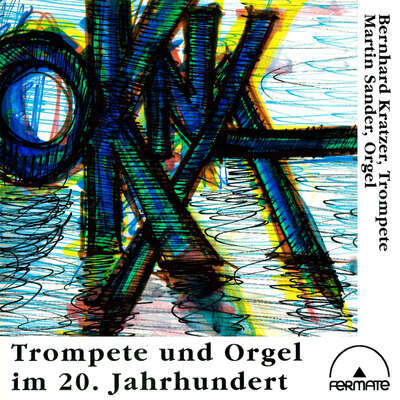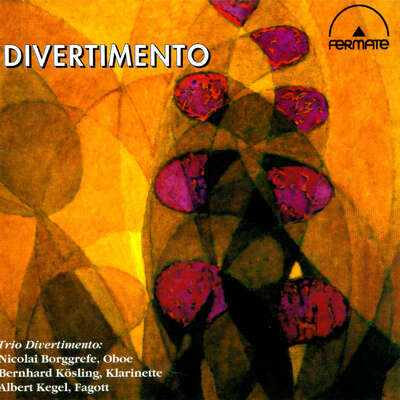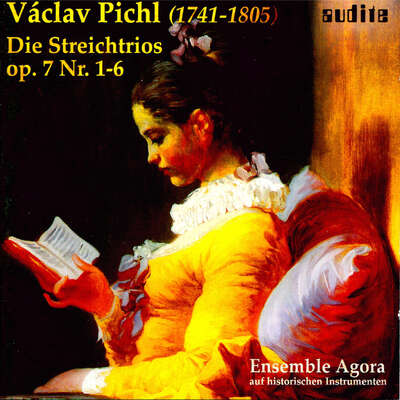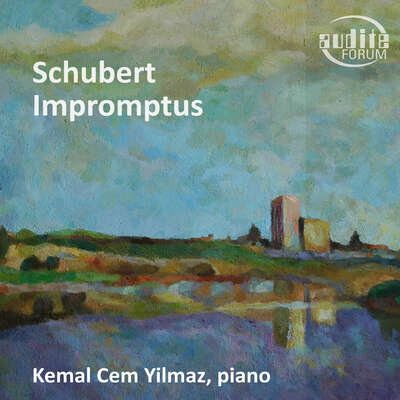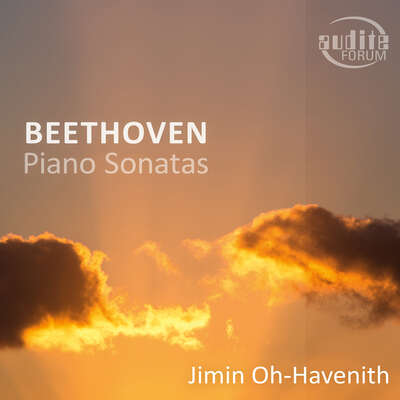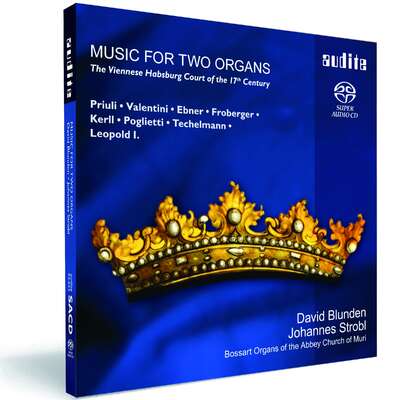
Auto-Rip
Following their award-winning audite debut album, the Boreas Quartett Bremen now focus on the lyrical sound of the recorder consort: Between Spheres features music of the late renaissance by Alessandro Poglietti, closely intertwined with the highly expressive Schwebungen by Markus Schönewolf. Using over 40 instruments, the Boreas Quartett Bremen invite you to join them on a journey between the sound spheres of early and new music.more
"Music is played with the finest playing culture, contrasting narrative with lyrical and highly virtuosic passages." (Pizzicato)
Details
| Between Spheres | |
| article number: | 97.784 |
|---|---|
| EAN barcode: | 4022143977847 |
| price group: | BCA |
| release date: | 5. May 2023 |
| total time: | 61 min. |
Bonus Material
Informationen
Between Spheres is dedicated to the lyrical sound of the recorder consort. The combination of seventeenth century music with a contemporary cycle written for the quartet has a captivating effect, leaving the listener wondering as to where one epoch might end and the other begin.
The recorders of the Boreas Quartett Bremen reveal a diverse range of magical soundscapes, skilfully switching between the birdsong of Poglietti's Rossignolo and Schönewolf's Unter Kranichen, the hypnotic low instruments used in the late renaissance polyphonic Ricercari, and the agile and highly virtuosic parts in fugal works of both epochs. The pieces are closely interwoven, hovering "between spheres".
Following their award-winning Basevi Codex album of 2022, this is the Boreas Quartett Bremen's second audite album.
Reviews
Early Music Review | 16 May 2024 | Simon Desbruslais | May 16, 2024 | source: https://academic... New horizons for wind and brass
[…] Creating a dialogue with new music is also a subtext running through the Boreas Quartett Bremen album, Between spheres (audite 97.784, issuedMehr lesen
What do these recordings tell us about the outlook for wind and brass in early music in the current climate? Firstly, they highlight the potential for new writing on old instruments in bringing people together and building a wider community; the crowd-funding approach for Northern Soul shows how a new work can revitalize and revisit old practices. Secondly, they demonstrate that new technical boundaries can be emulated and often broken—though performing artists of the 17th and 18th centuries reached the apogee of their crafts, one should not assume that the same accomplishments may not be achieved by performers today, despite the modern sound world within which we inhabit. Thirdly, they show the value of continued efforts to record unfamiliar repertory—Werner’s Requiem must, surely, be heard as an essential precursor to those by Michael Haydn and Mozart and deserves more attention on the concert platform. The foreboding use of trombones, executed with grace by Alexander Brungert and Cas Gevers, provides one of the most tragic timbres of 18th-century writing. I find it a tantalizing opportunity to inspire a new work—one can only wonder what possibilities could emerge for a 21st-century requiem for chorus with trombones. With motivation and commitment, there is tremendous potential for wind and brass projects in early music: rich horizons indeed.
F. F. dabei | VOM 7. BIS 20. OKTOBER 2023 | October 7, 2023 GEHÖRT UND GUT GEFUNDEN: CD-TIPPS
Das Flötenensemble zeigt eine Klangmagie, indem es virtuos zwischen Ausdruckswelten wechseltMehr lesen
American Recorder Magazine | Fall 2023 | Tom Bickley | September 1, 2023
Boreas Quartett Bremen's range of expression on this recording shows a wonderful command of their instruments and deep understanding of this music. [...] Read the booklet and listen to this recording in as high quality sound as possible. You might take flight!Mehr lesen
Klassiek Centraal | 6 mei 2023 | May 6, 2023 | source: https://klassiek...
Het Borea Quartett Bremen richt zich hier op de klankmagie van het blokfluitconsort en koppelt muziek uit de 17e eeuw aan een hedendaagse cyclusMehr lesen
www.pizzicato.lu | 05/05/2023 | Remy Franck | May 5, 2023 | source: https://www.pizz... Eine Mischung, die funktioniert
Das Boreas Quartett Bremen stellt auf dieser CD von audite Musik des 17. Jahrhunderts von Alessandro Poglietti zeitgenössischen Werken von MarkusMehr lesen
Alessandro Poglietti (ca. 1600 – 1683) war Organist und Komponist, der ab 1661 bis zu seinem Tod als Kammer- und Hoforganist am Kaiserlichen Hof unter Leopold I. wirkte. Er komponierte überwiegend für Tasteninstrumente, daneben konnten einige andere Werke erhalten werden, darunter die Suite, die auch programmatische Stücke enthält. Dass die Musikerinnen vom Boreas Quartett auch den streng kontrapunktisch komponierten Ricercari Stimmungen und Poesie abgewinnen können, zeigt die Musikalität dieses Ensembles.
Der 1977 in Köln geborene Markus Schönewolf hat seinen technisch wie gestalterisch herausfordernden Zyklus dem Boreas Quartett gewidmet. Musiziert wird mit feinster Spielkultur, kontrastreich narrativ mit lyrischen und hoch virtuosen Passagen. Die komplexe und ungemein fantasievolle Musik von Schönewolf wird in diesen atmosphärischen Interpretationen bestens bedient.
Die Mischung von alt und neu funktioniert vorzüglich auf einer CD, die mit einer idealen Mischung aus Raum und Klarheit aufgenommen wurde. Die neue Veröffentlichung ist also durchaus empfehlenswert, und jeder, der nicht an antiquierten Vorstellungen von Blockflötenmusik festhält, sollte diese CD ebenso anregend wie unterhaltsam finden.
On this CD from Audite, the Boreas Quartett Bremen juxtaposes 17th century music by Alessandro Poglietti with contemporary works by Markus Schönewolf.
Alessandro Poglietti (ca. 1600 – 1683) was an organist and composer who served as chamber and court organist at the Imperial Court under Leopold I from 1661 until his death. He composed mainly for keyboard instruments, but several other works have been preserved, including the Suite, which also contains programmatic pieces. The fact that the musicians of the Boreas Quartet are able to care for moods and poetry even in the strictly contrapuntal composed Ricercari, shows the musicality of this ensemble.
Markus Schönewolf, born in Cologne in 1977, has dedicated his technically and creatively challenging cycle to the Boreas Quartet. Music is played with the finest playing culture, contrasting narrative with lyrical and highly virtuosic passages. Schönewolf’s complex and immensely imaginative music is well served in these atmospheric interpretations.
The blend of old and new works exquisitely on a CD recorded with an ideal mix of space and clarity. The new release is thus thoroughly recommendable, and anyone who is free from antiquated notions of recorder music should find this CD as stimulating as it is entertaining.
